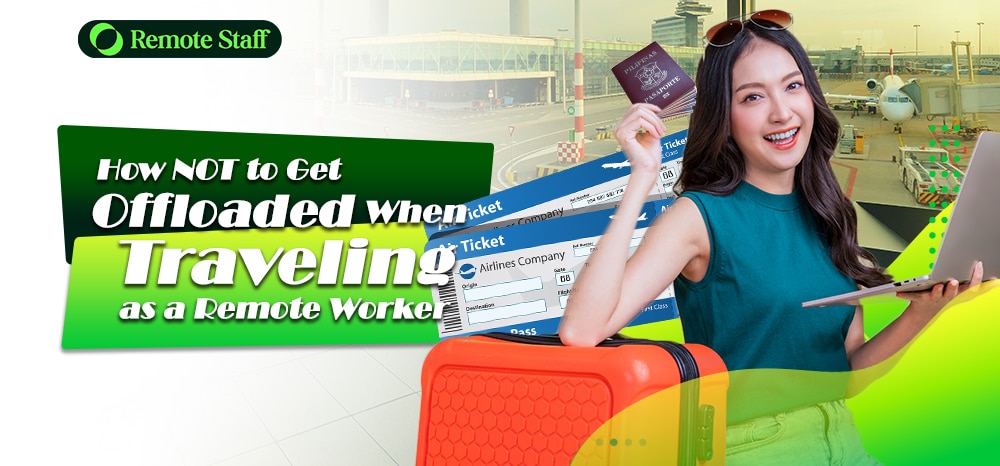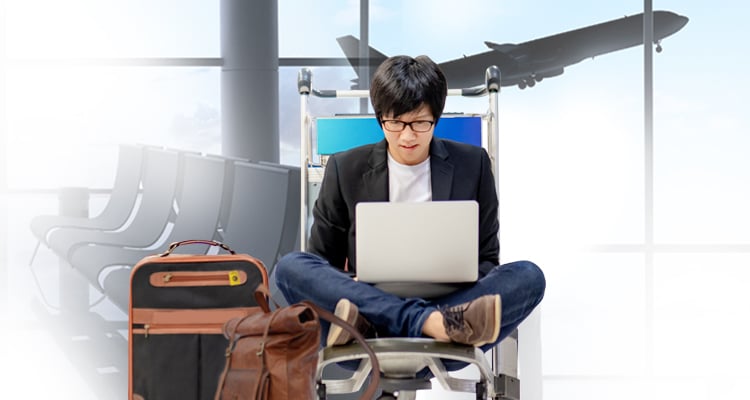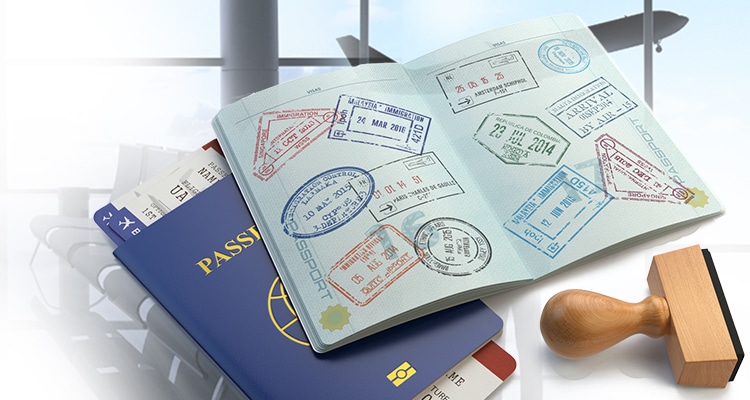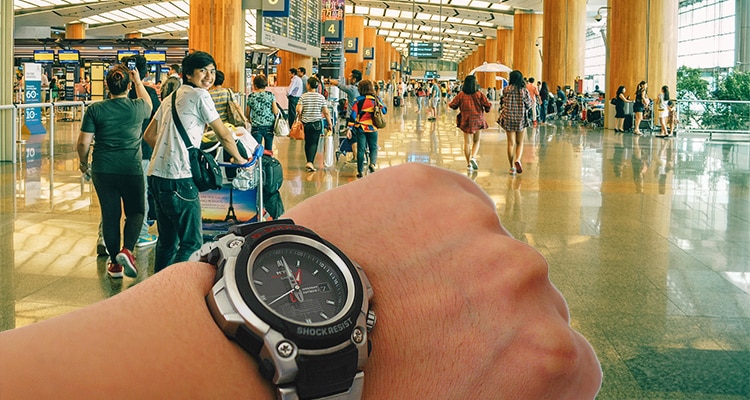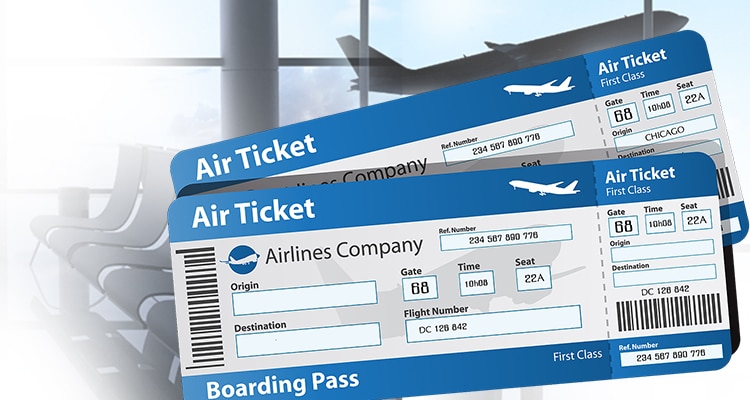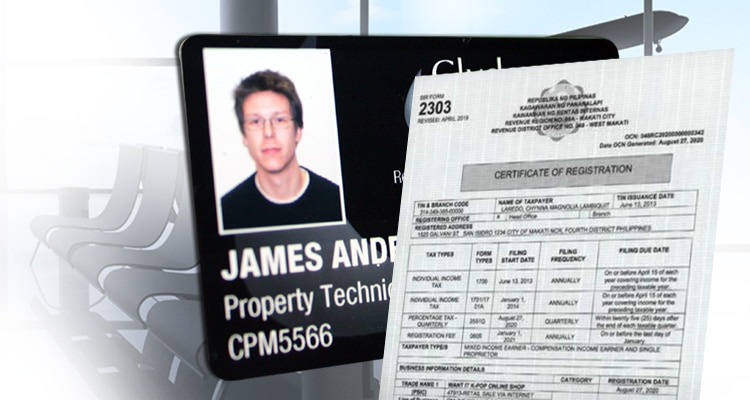Traveling the world is a dream for many.
Exploring cities. Learning about a different culture. Or just relaxing amidst the scenic countryside abroad. What a life, right?
Fortunately, traveling is now more accessible than ever, especially if you’re a remote worker. With an online job, you just need a laptop and a stable internet connection, and you’re ready to go.
Unfortunately, More and More Filipino Travelers are Getting Offloaded Today
But hold your wanderlust. A lot of Filipinos are offloaded because of immigration’s strict measures against human trafficking.
We all have the right to travel. But before you can leave, you are interviewed by the immigration officer for your purpose of travel.
And if they suspect that you have a shady motive for going abroad, they can offload you.
Some say that they’ll travel as tourists, but end up looking for a job or staying long past their visa’s expiry date in another country.
The point is, you don’t want your vacation to end before it can even begin.
You can easily avoid this predicament. Here are some tips on how not to get offloaded as a remote worker.
Bring a Valid Passport and Visa
Travelers should always bring the basic documentary requirements. First, you should have a passport that’s valid for 6 months. Your passport will serve as your primary legal identification abroad.
Also, you should have the required visa on it, if applicable to your destination.
Arrive Early
Next, try to arrive early for your flight.
Some people are subject to more questions than others. For example, frequent travelers may breeze through immigration, while first-time and high-risk ones might find themselves at the receiving end of more questions.
Some examples of high-risk travelers are:
- Travelers aged 25 and below
- Those who aren’t College Graduates
(If you fall under one of these categories, don’t worry, you won’t necessarily get offloaded. You might just be questioned a bit more than the others.)
Moreover, immigration lines can be longer during peak season. For example, going through the one in NAIA in Manila can take up to 1-2 hours.
Imagine if you arrive at the airport with only a bit of time to spare and end up getting a barrage of questions. Even if you get past immigration, you may still end up missing your flight.
Have Your Return Ticket Handy
Immigration officers want to ensure that you’ll be returning home and that you won’t risk becoming an illegal immigrant. And one crucial piece of evidence for that is a return ticket.
Have your return ticket ready when it’s your turn. This could be a ticket going back home or a flight to a different destination.
Book Your Accommodations Beforehand
Immigration officers want to verify your travel plans. And part of that is knowing where you’ll stay once you’re out of the country.
Your accommodations will ensure that you’ll have a place to stay and thus won’t be a burden or a risk for overstaying to the host country as well as confirm your purpose for travel.
Have Proof of Financial Capability
Can you afford to travel to your destination? Traveling can be expensive. If you do not have the resources (and the documents to prove it), this can raise red flags about your true purpose for going abroad.
Depending on the immigration officer, your “leisure” travel might look like a poor cover-up for an overseas job hunt. So, it’s best to have enough pocket money and some credit cards on you to prove that you can afford it.
And speaking of…
Carry Proof of Work or Business to Fund Your Travel
Another proof of financial capability is your job or business background. When you have a legitimate income source, the immigration officer will be much less likely to question your intentions for travel.
Thus, have your company ID ready. You can also bring your income tax return (ITR) and business registration as proof.
The problem is that some remote workers don’t have a company ID because they’re independent contractors. Also, some are not registered, so they don’t have an ITR or business registration certificates.
Instead, secure a document from your client stating the following as proof:
- How long you’ve been working with them
- How much your salary is
Be Confident and Truthful
Facing an immigration officer can be nerve-wracking. But try to maintain your composure and answer confidently and truthfully.
Immigration officers are trained to spot hesitation and dishonesty. When you lack confidence, you can be suspected and questioned further.
Looking for online opportunities so you can travel as a remote worker?
Sign up through Remote Staff for the best online job listings for Filipinos. Remote Staff offers long-term remote working careers in different fields.
This way, you can travel the world and still earn a living while at it. Cheers!

